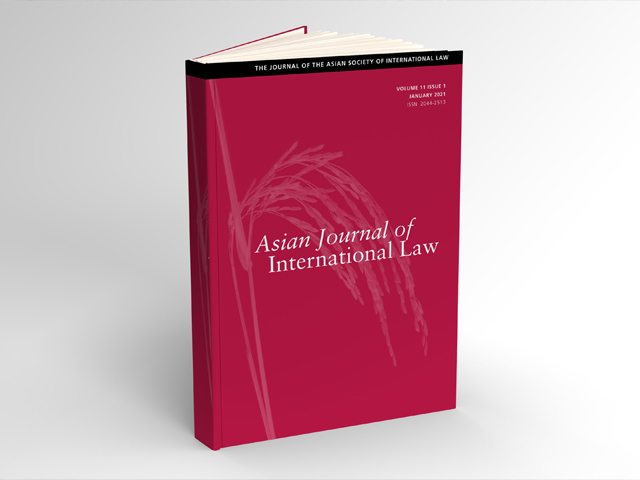News Archive
Published Peer-reviewed Article by a Law Professor by Cambridge University Press

A peer-reviewed article titled “Palestine’s Accession to Geneva Convention III: Typology of Captives Incarcerated by Israel” published early November in “Asian Journal of International Law” by Cambridge University Press explored the impact of Palestine’s 2014 accession to the Third Geneva Convention and the classification of Palestinian prisoners held in Israeli custody. The 30-page article is co-authored by Dr. Mutaz M. Qafisheh, Associate Professor of International Law at Hebron University College of Law and Political Science, and Mr. Ihssan A. Madbouh, a PhD researcher in international law and development, Ruhr University, Germany. Asian Journal of International Law is indexed by Scopus, with CiteScoreTracker 2021: 1.1 (so far).
The research reveals that Israeli occupation forces, according to United Nations statistics, has captured over 800,000 Palestinians since 1967, without considering any of them as prisoner of war (POW) under the pretext that these persons do not belong to a “party” to the conflict. Israel for long argued that Geneva Convention III, which regulates the status of POWs, can only be signed or ratified by states and Palestinians are not citizens of any state.
Following the State of Palestine’s accession to Geneva Convention III in 2014, this Israeli argument can no longer stand, the researchers showed. This fundamental change, however, has not been discussed by the international academia, nor before Israeli military courts that try detained Palestinian. And it is yet to be brought before the International Criminal Court (ICC).
According to the article, incarcerated Palestinians who took part in hostilities fall into one of three categories: members of Palestinian security forces, persons affiliated with armed groups, and up-risers who fight against the occupation on an individual basis. The study demonstrated that the conditions set out in Geneva Convention III relating to POWs fully apply to these groups. Thus, Israel’s treatment of POWs as unlawful combatants, or as security prisoners/“criminals”, is contrary to established rules of international humanitarian law (IHL).
The significance of this research stems from the obligation that IHL imposes on the Occupying Power to refrain from prosecuting POWs over their military actions motivated by national resistance. POWs must, according to the research, be released upon the cessation of hostilities. Their continued detention or trial is thus considered as a grave breach of Geneva Convention III and therefore constitutes a war crime under the Rome Statute that established the ICC. POWs should be also accorded a set of privileges and rights under the said Convention in terms of treatment, health care, and protection by the occupant. As a result, the Israeli treatment of the captives and denial of their POW status triggers liability before the International Criminal Court, particularly after the ICC’s decision of 5 February 2021 that it possesses jurisdiction to investigate crimes occurring in the territory of Palestine. Dr. Qafisheh represented the Palestinian Bar Association before the ICC and the Court has fully adopted his plea in its aforementioned decision, upon which the ICC Prosecutor decided on 3 March 2021 to open an investigation on the alleged crimes committed in Palestine.
To view the link of the published article, see: https://bit.ly/3FzHpTB





